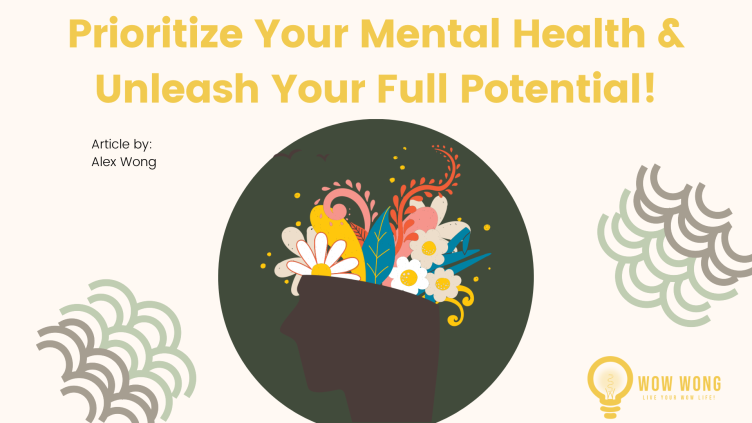The importance of mental health has become increasingly apparent in today’s fast-paced, high-pressure world. The COVID-19 pandemic has further highlighted the need to prioritize our mental well-being, as many individuals have faced unprecedented stress, isolation, and uncertainty. As someone who has personally been diagnosed with depression and anxiety at different points in my life, and most recently faced burnout last year, I understand the importance of discussing and addressing mental health issues. As we navigate the post-pandemic era, it’s essential to focus on taking care of our mental health, not only to improve our overall well-being but also to build resilience in the face of future challenges.
Mental health challenges can affect anyone, regardless of age, gender, or background. By openly discussing these issues, we can break the stigma surrounding mental health, making it easier for people to seek help and support. Additionally, when we prioritize our mental well-being, we can foster healthier relationships, improve productivity, and better cope with life’s inevitable ups and downs. If you’re facing mental health challenges, remember that help is available and you’re not alone. Here are five tips to help you cope with mental health issues and improve your overall well-being in this post-pandemic world.
1. Recognize and accept your feelings
- Acknowledge your emotions and accept that it’s okay to feel anxious, sad, or overwhelmed.
- Remember that feelings are temporary and will pass with time.
- Write down your thoughts in a journal to better understand and process your emotions.
- Prioritize self-care.
2. Make time for activities that help you relax and recharge, such as reading, taking a walk, or enjoying a hobby.
- Pay attention to your physical health by eating well, exercising regularly, and getting enough sleep.
- Set boundaries to ensure you’re not taking on too much and avoid negative influences in your life.
3. Seek professional help
- If your mental health challenges persist or worsen, consider reaching out to a therapist, counselor, or psychiatrist.
- Professional help can provide you with valuable tools and resources to better understand and manage your mental health.
4. Connect with others
- Share your feelings and experiences with trusted friends or family members who can offer support and understanding.
- Find an accountability partner, join a support group or engage in an online community where you can connect with others facing similar challenges.
5. Engage in social activities that bring you joy and help you feel connected to others.
- Practice mindfulness and stress reduction techniques
- Incorporate mindfulness techniques such as deep breathing, meditation, or yoga into your daily routine.
- Identify and challenge negative thoughts or beliefs that may contribute to your mental health challenges.
- Focus on the present moment and practice gratitude to foster a more positive mindset.
It’s time to take control of your mental health and unleash your full potential! Remember that overcoming mental health challenges is a journey, not a destination, and it’s crucial to be patient with yourself. By implementing these powerful strategies, you can transform your life and achieve the happiness, well-being, and success you deserve.
Let’s work together to create a safe and supportive environment where everyone feels comfortable talking about their mental health and help one another because you never know who in your community might be facing these challenges. Dive deeper into the world of mental health awareness and continue your journey by checking out my YouTube video series on mental health awareness, where you’ll find even more valuable tips, insights, and strategies! Click the link below and subscribe to my YouTube channel to learn more!






